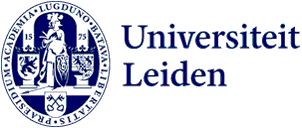138 search results for “catalysis surface” in the Staff website
-
Painting summer landscapes
Arts and leisure, Arts and leisure
-
 Hakan Çamoglu
Hakan ÇamogluFaculty of Science
-
 Titus de Haas
Titus de HaasFaculty of Science
-
 Lan Wang
Lan WangFaculty of Science
-
 Vasiliki Tsina
Vasiliki TsinaFaculty of Science
-
 Padmaja Kar
Padmaja KarFaculty of Science
-
 Art Hoti
Art HotiFaculty of Science
-
 Joeri Schoenmakers
Joeri SchoenmakersFaculty of Science
-
 Lisa Rieger
Lisa RiegerFaculty of Science
-
 Licheng Wei
Licheng WeiFaculty of Science
-
 Agur Sevink
Agur SevinkFaculty of Science
-
 P.J. Veth
P.J. VethNonnensteeg 1-3, Leiden
-
 Maarten van Ginkel
Maarten van GinkelFaculty of Science
-
 Lolita Dsouza
Lolita DsouzaFaculty of Science
-
 Bas Kreupeling
Bas KreupelingFaculty of Science
-
 Andy Jiao
Andy JiaoFaculty of Science
-
 Sjoerd Verbeek
Sjoerd VerbeekFaculty of Science
-
 Corjan van de Griend
Corjan van de GriendFaculty of Science
-
 Suzanne Assen
Suzanne Assen -
Veni grant for ten Leiden researchers
Ten Leiden researchers have been awarded a Veni grant by the Dutch Research Council (NWO). The grant, of up to 280,000 euros, will enable them to elaborate their ideas over a period of three years.
-
 Maarten van 't Zelfde
Maarten van 't ZelfdeFaculty of Science
-
 Grégory Schneider
Grégory SchneiderFaculty of Science
-
 Francesco Buda
Francesco BudaFaculty of Science
-
 Glyn Muitjens
Glyn MuitjensFaculty of Science
-
 Sylvestre Bonnet
Sylvestre BonnetFaculty of Science
-
EUniWell discovery project in full swing
The ‘Discovery of the Entrepreneurial Ecosystem of EUniWell’s Consortium’s Members’ project has received a EUniWell seed grant. Sjoerd Louwaars, the representative from Leiden University, talks about the project and the first results.
-
We’re surrounded by noise: ‘Silence should be a human right’
Learn how silence can benefit your well-being during Work Stress Week from 11 to 15 November. It’s no surprise that we sometimes need a bit of peace and quiet, says Professor of Auditory Culture Marcel Cobussen. ‘Our brain is exposed day and night to auditory stimuli.’
-
Why we need to look underwater to understand our past
Traces of the past remain hidden in rivers, lakes and seas. In his inaugural lecture Martijn Manders will explain why underwater archaeology is important to understanding our history.
-
Leiden biologists find nanoplastics in developing heart
Nanoplastics can accumulate in developing hearts, according to a study by biologist Meiru Wang from Leiden University. Her research on chicken embryos sheds new light on how these tiny plastic particles pose a threat to our health.
-
Vidi grants for 12 researchers from Leiden University
An impressive 12 researchers from Leiden University have been awarded an 800,000-euro grant by the Dutch Research Council (NWO). This will enable them to develop their own line of research over the next five years.
-
Fourteen Leiden University researchers receive Vidi grant
The Dutch Research Council (NWO) has awarded Vidi grants to 14 Leiden researchers. This grant of a maximum of 850,000 euros will enable them to start a new research group and develop their own line of research over the next five years.
-
‘Nice tool but what are we supposed to do with it?’
Public agencies are keen to use new technology such as AI to speed up their primary processes. But the internal organisation is often a major stumbling block. SAILS researcher Friso Selten conducts research at the interface between data science and public administration.
-
Peter van Bodegom on sustainable horticulture
Dutch greenhouse horticulture is a world leader when it comes to innovative capacity and sustainability, but ‘the challenges are great in terms of energy, water, environment and biodiversity,’ says Peter van Bodegom, coordinator of AgriFood at the Centre for Sustainability of the Leiden, Delft, Erasmus…
-
Annetje Ottow on a safe (and unsafe) environment: ‘An open dialogue is crucial’
Revelations about unacceptable behaviour and sexual misconduct in the TV and sporting world have rekindled the public debate about a safe environment. At Leiden University we are coming together to prevent unacceptable behaviour and provide proper care and support for victims. According to President…
-
Inspiration session art project [s]TATTOO
Share your ideas on social safety
-
Stimulating Open Science and Recognition & Rewards
Greater transparency in science. Broader career paths. Less work pressure. A dynamic conversation at the Faculty of Social and Behavioural Sciences (FSW) focused on these goals.
-
‘Let’s try not to lose sight of each other’ – Interview with Annetje Ottow
The conflict between Israel and Hamas has had a clear impact on Leiden University. Students and staff are angry or scared, feel unsafe and are experiencing group pressure.
- Activities
